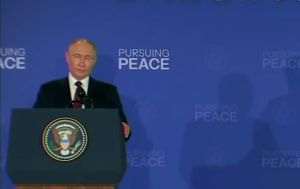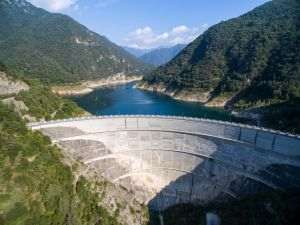
The central bank and the US government have allocated trillion dollars to save the American banks at the peak of the crisis. All of it was justified by their size and systemic nature. Back then they were "too big to fail", because there was the risk of a chain collapse of the global financial system happening.
Now, the big banks have become even bigger, and just like some gigantic black holes, they are capable of distorting not just space and time, but the economic, financial and even legal environment as well.
Bloomberg recently wrote that the regulators in the US are investigating the potential involvement of the Goldman Sachs bank in manipulation the currency exchanges. Goldman Sachs joins other big names, such as JP Morgan, Citi, Barclays or HSBC, on the list of banks investigated for manipulating the markets. "No one has yet to been charged with any misdeeds", Bloomberg further writes.
Even though the reason behind the "intangibility" is more than obvious, a recent surprise can have unpredictable events in the near future.
At the "Global Economic Policy Forum", William Dudley, the president and executive director of the Federal Reserve Bank of New York spoke about the "unacceptable regime" of the financial institutions that are "too big too fail".
Before being brought by Timothy Geithner at the Federal Reserve, Dudley was the chief-economist at Goldman Sachs for ten years. But none of these was any surprise.
Even though he has reminded that the issue of "too big to fail" creates competition problems between the big banks on one side, and the medium and small ones on the other, by giving the former easier and cheaper access to financing, as well as through the perception at the investor level, of the implied government backstop, William Dudley spoke out against breaking up the major financial conglomerates.
Why? Because allegedly, their existence is the result of the economies of scale at the level of the financial system, and their extended networks allow them to provide valuable services to customers all over the world. What the head of the New York Fed forgets to mention is that many of the global banks would have been victims to the crisis, without the help of the major central banks.
But the important point of the speech of William Dudley, is not the radical reformation of the banking regulation system, nor finding the means to deal with the problem of "too big to fail".
"Some might say that my proposals- higher capital requirements and finding better motivations for reducing the odds of default - are not enough. Perhaps that opinion is correct. After all, these improvements of the current regime may not solve another important issue, which is obvious at the level of some major financial institutions - the apparent lack of respect for the law, regulations and the confidence of the public", said the man who is also a vice-president of the Federal Reserve, with a permanent seat on the Monetary Policy Committee.
Lack of respect for the law and regulations? But who's stopping the courts from applying the law?
According to analyst Karl Denninger, from Market Ticker, an organization that shows lack of respect for the law is nothing but a "criminal enterprise", and in order to deal with such cases, in the United States a law called the "Racketeer Influenced and Corrupt Organizations Act" (RICO) exists.
The Cambridge dictionary defines "racket" as "an illegal or dishonest activity", which helps earn large amounts of money, and Wikipedia defines it as "a service provided fraudulently to deal with a problem that doesn't exist".
And besides, who needs the trust of the public when it is forced to do its dealings through the banking system, or else risk being called tax evaders or even worse, terrorists, and the Federal Reserve has got their backs?
For now, the courts in the US have struck deals every time with the major banks accused of market manipulation or cheating investors. The banks have neither acknowledged nor denied the charges.
Such an attitude should not surprise anybody, not even the leaders of the central banks, as William Dudley also said that "there is evidence of major failures, in terms of ethics and organization culture, at many major financial institutions", as it is "difficult to judge whether the reasons for that are their sizes and complexities, perverse motives or other elements".
The notions used by the president of the Federal Reserve of New York - disregard for the law and regulations, lack of ethics - are specific to the organized crime cartels.
With that being the case, does anybody still believe that stricter regulation can still improve the situation of a financial market, which almost has nothing left in common with the notion of a market?
Amid the lack of interest of the authorities in applying the law for the major financial institutions, the only hope for knocking some sense into the major financial institutions would be for the central banks to lose control of the situation.
Only then will the "global financial ocean" to its primordial "wilderness", and today's "dinosaurs" won't be able to hide behind the lenient courts to avoid the attacks of the small hungry predators.
"The improvements to the current regulatory regime may not solve another important problem, which is obvious at the level of some major financial institutions - the apparent lack of respect for the law, regulations and public trust." (William C. Dudley, president and executive director of the Federal Reserve Bank of New York )






























































